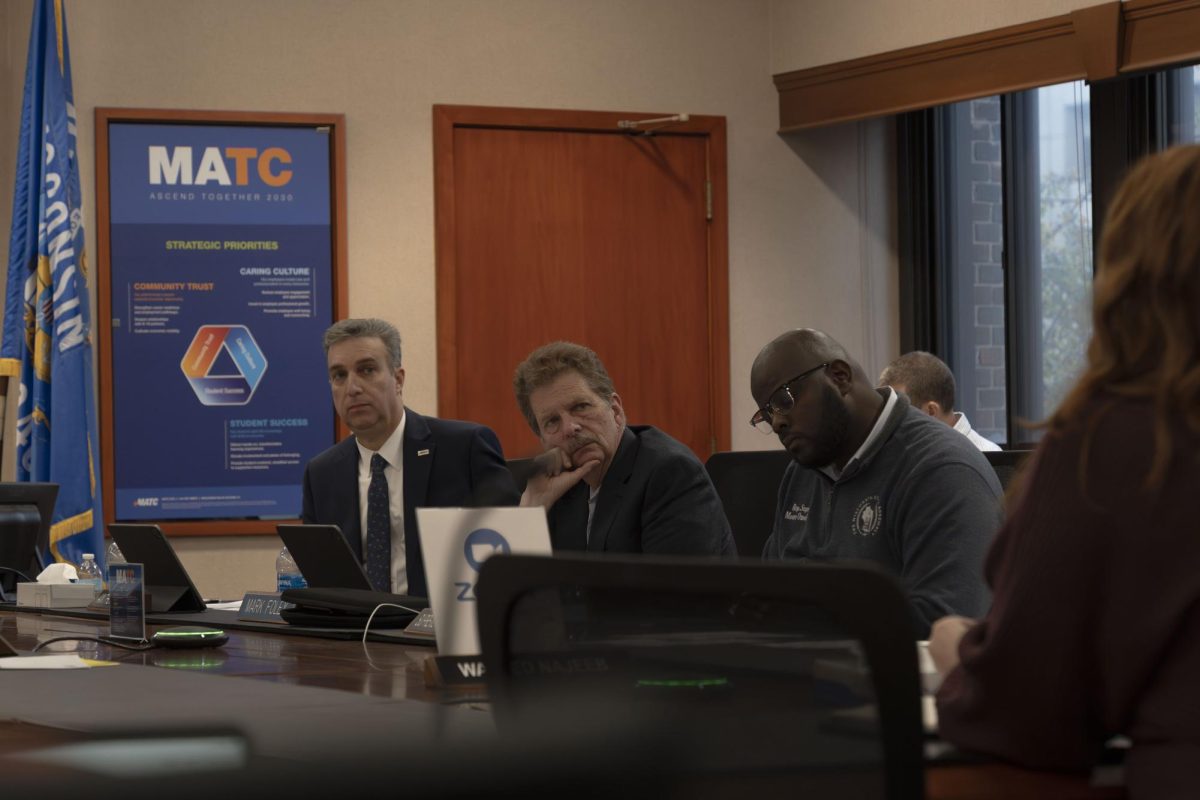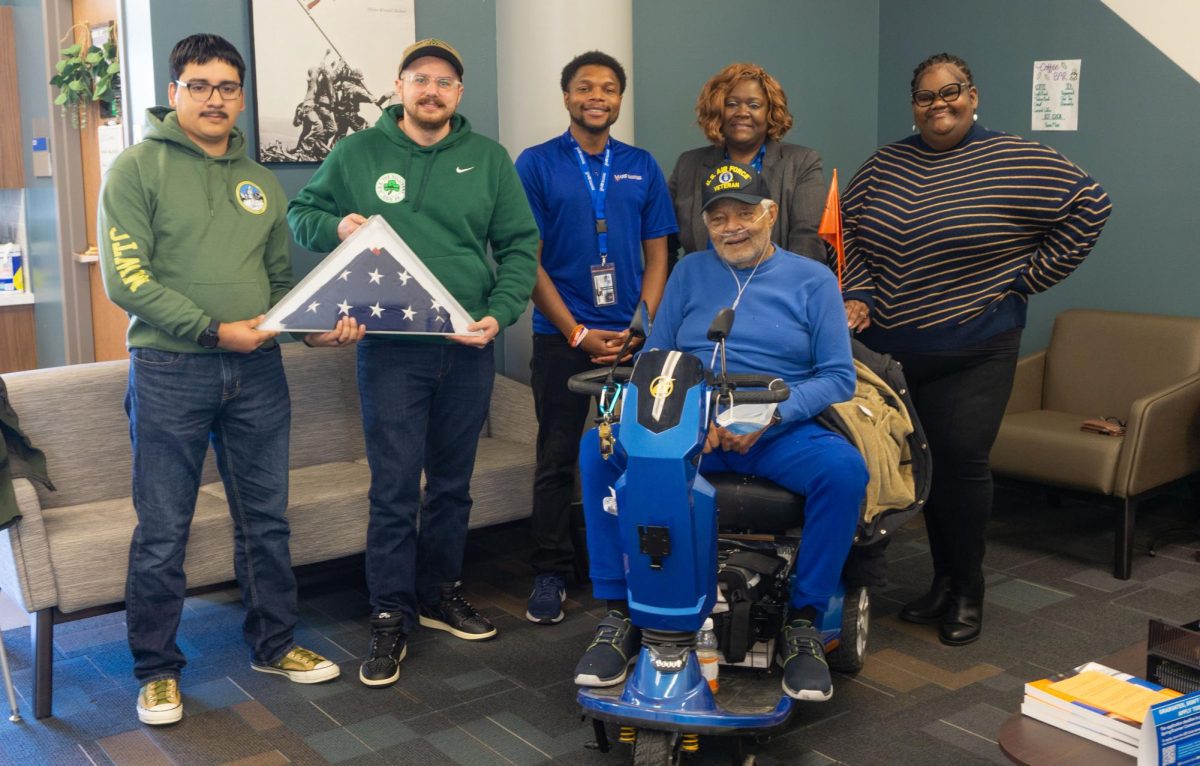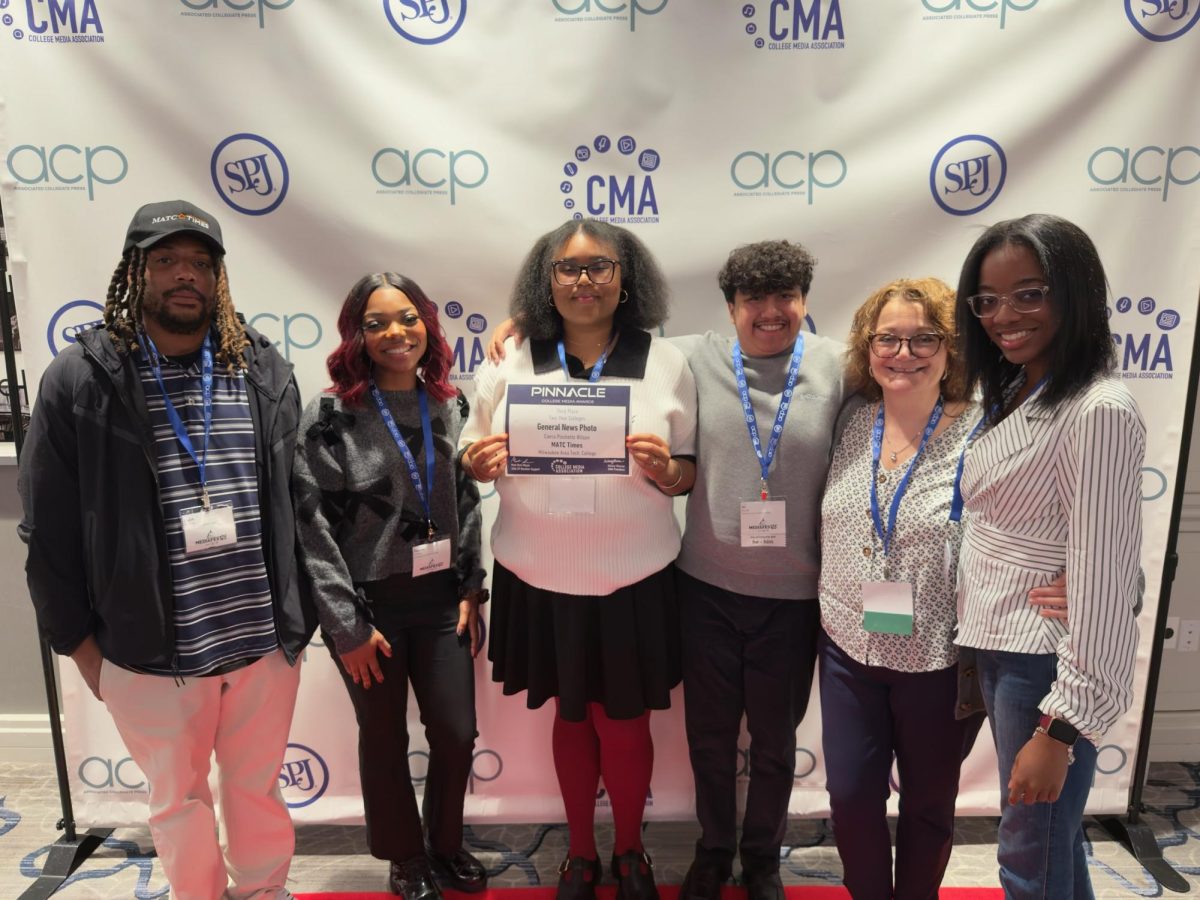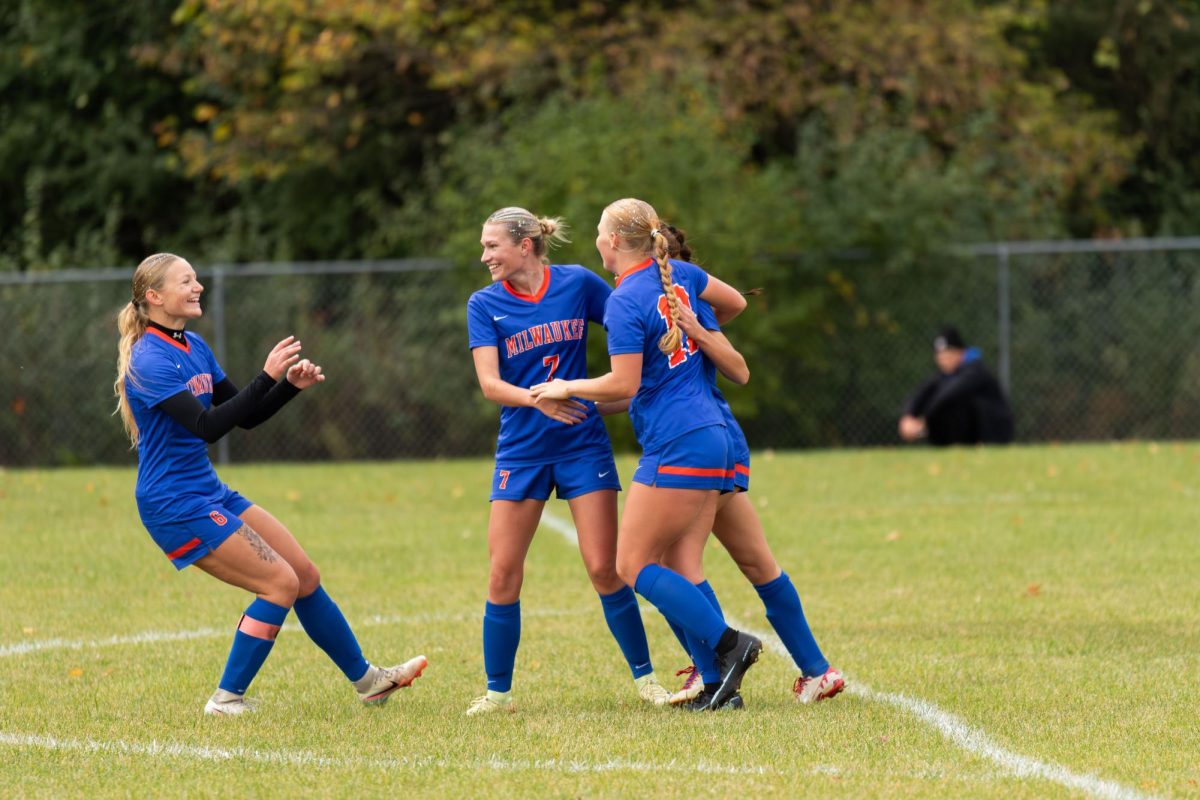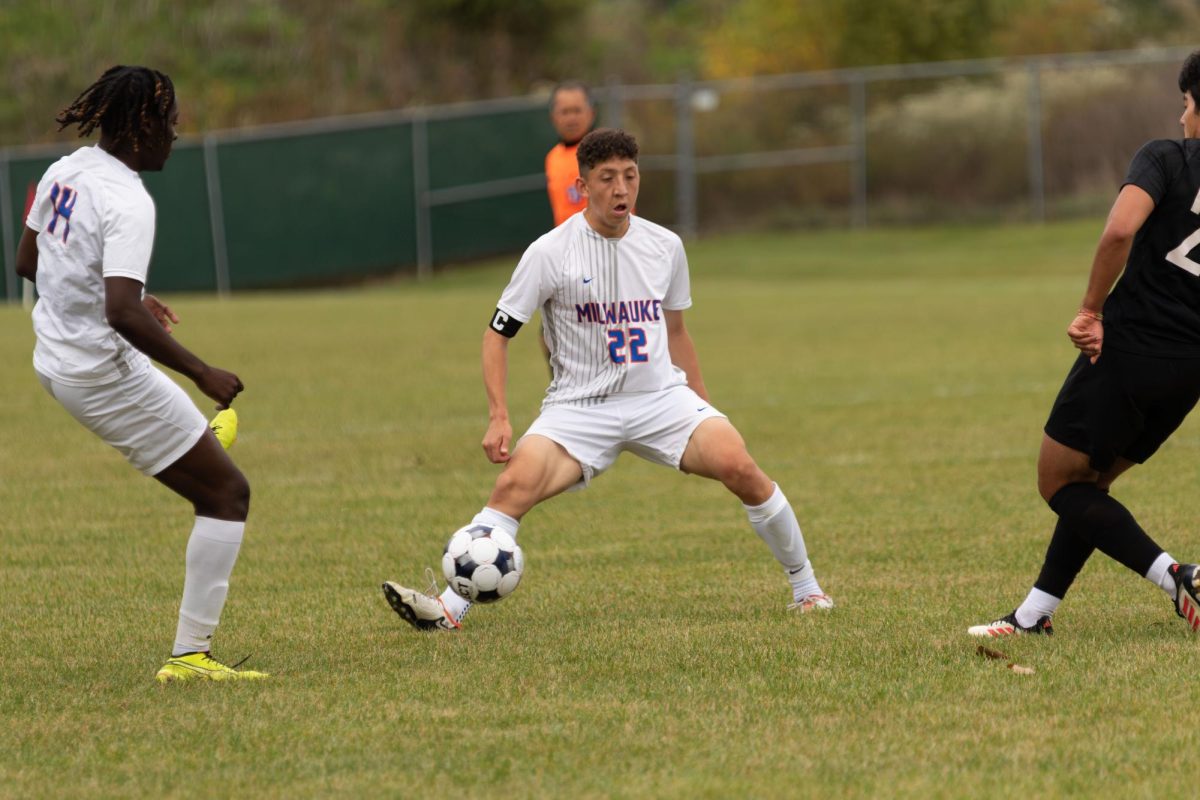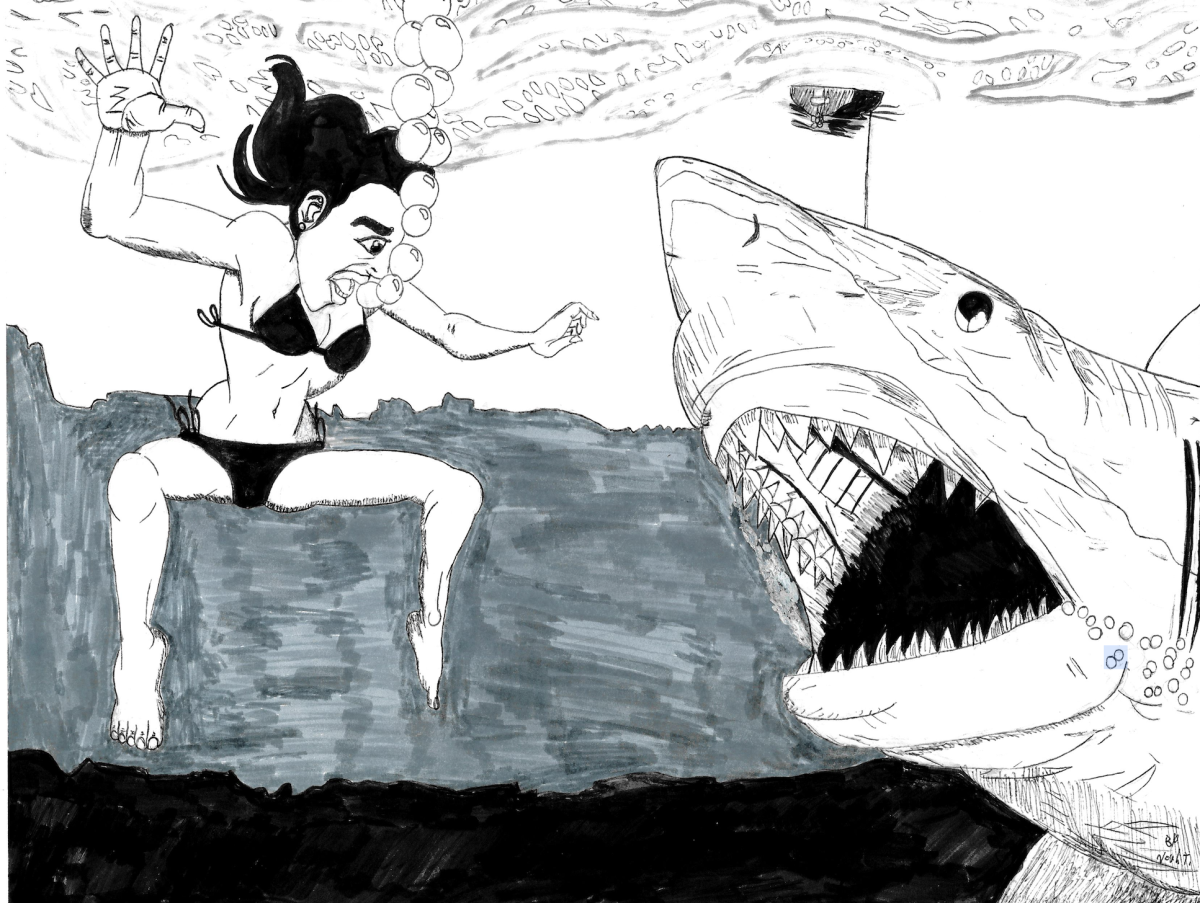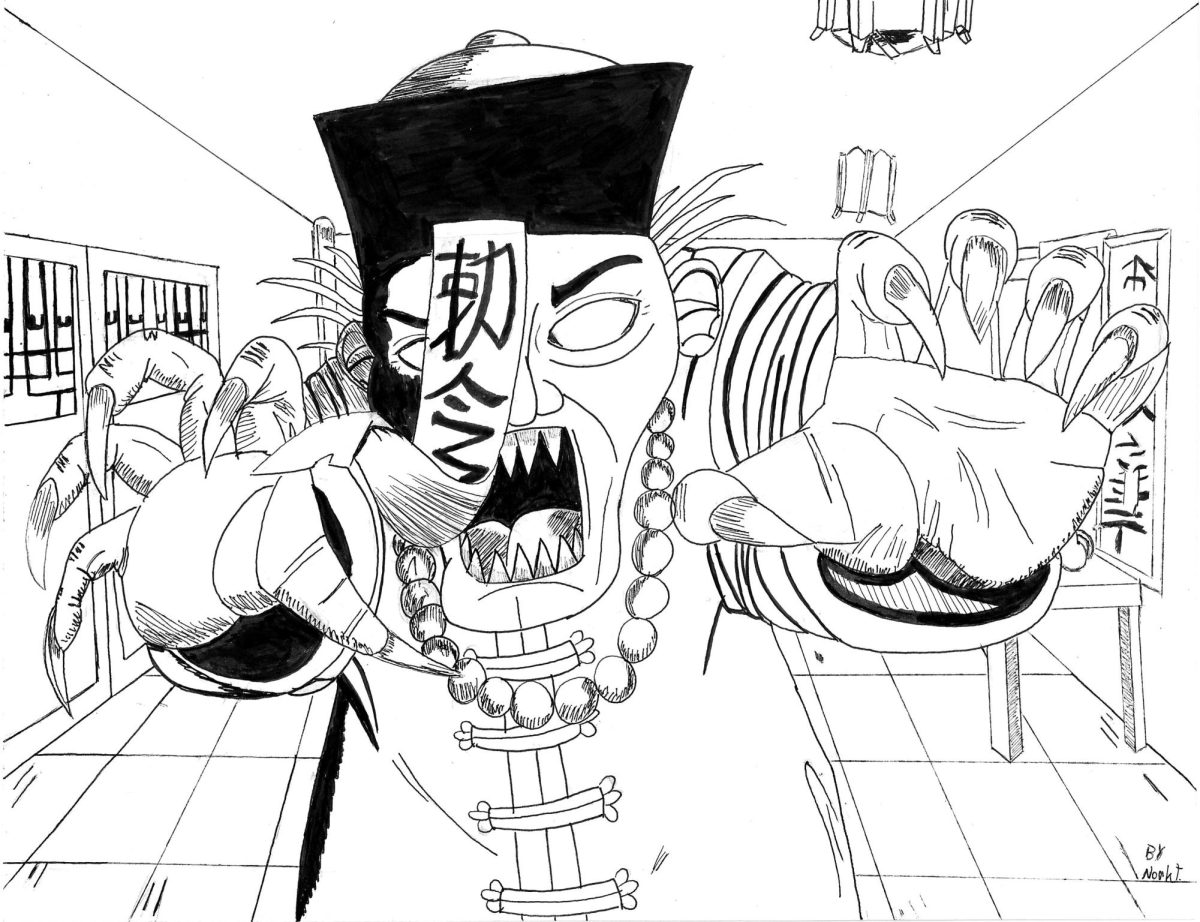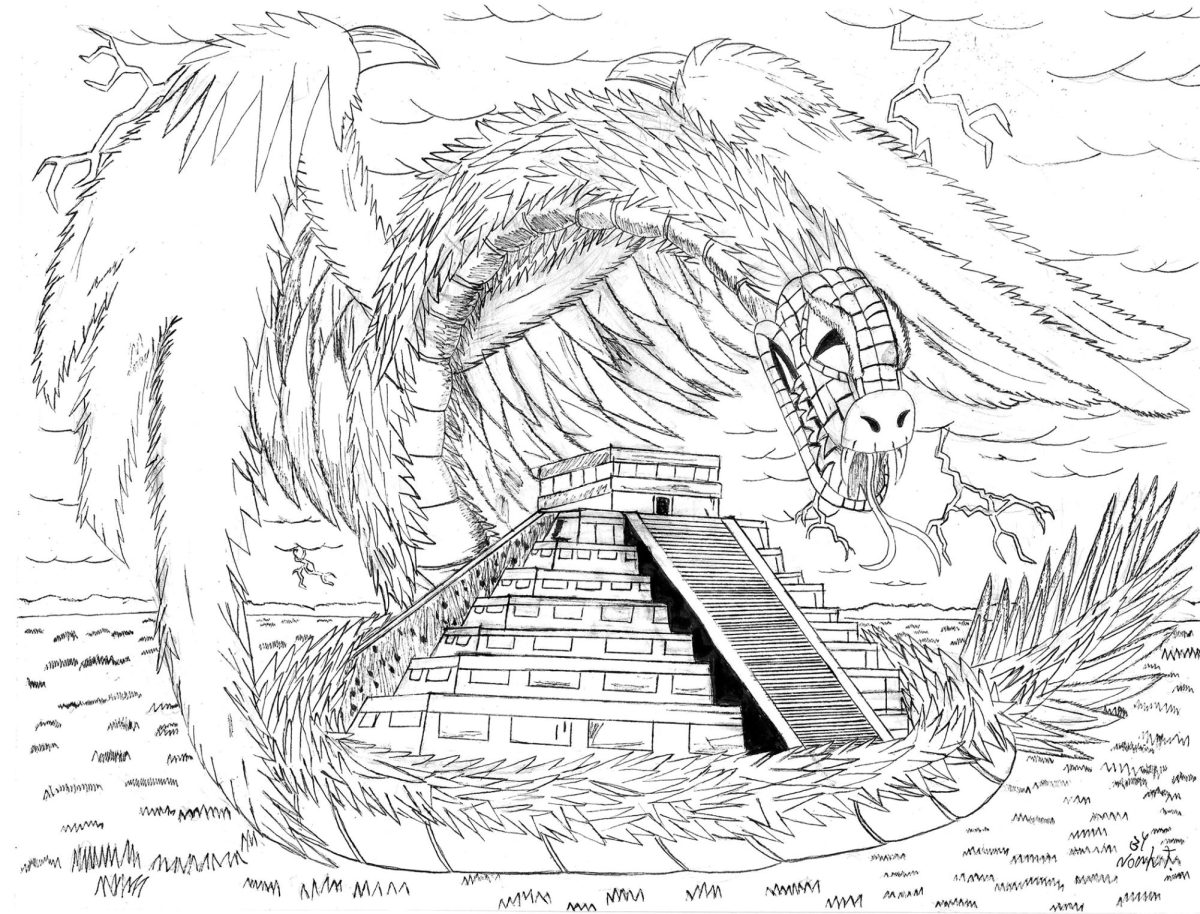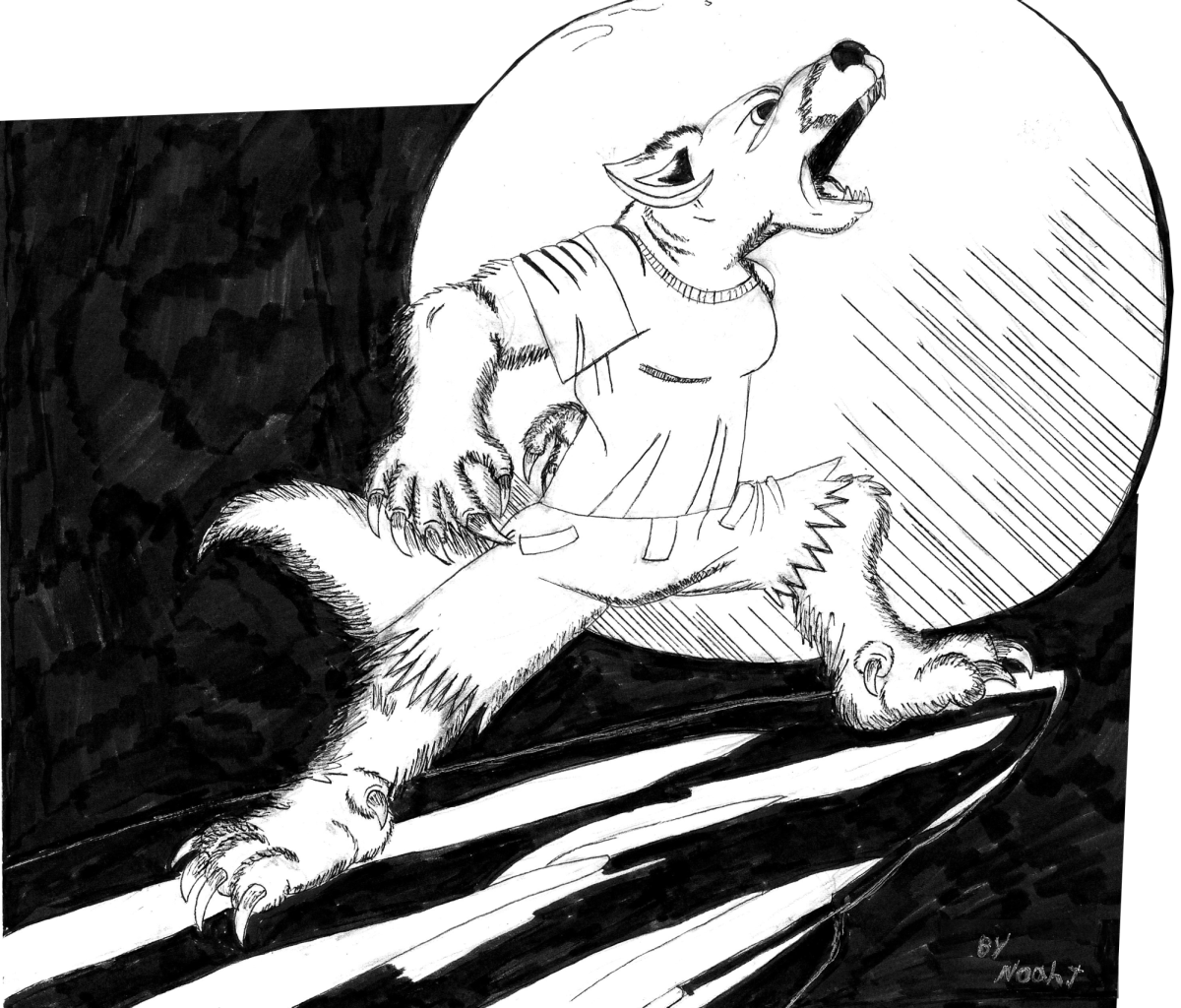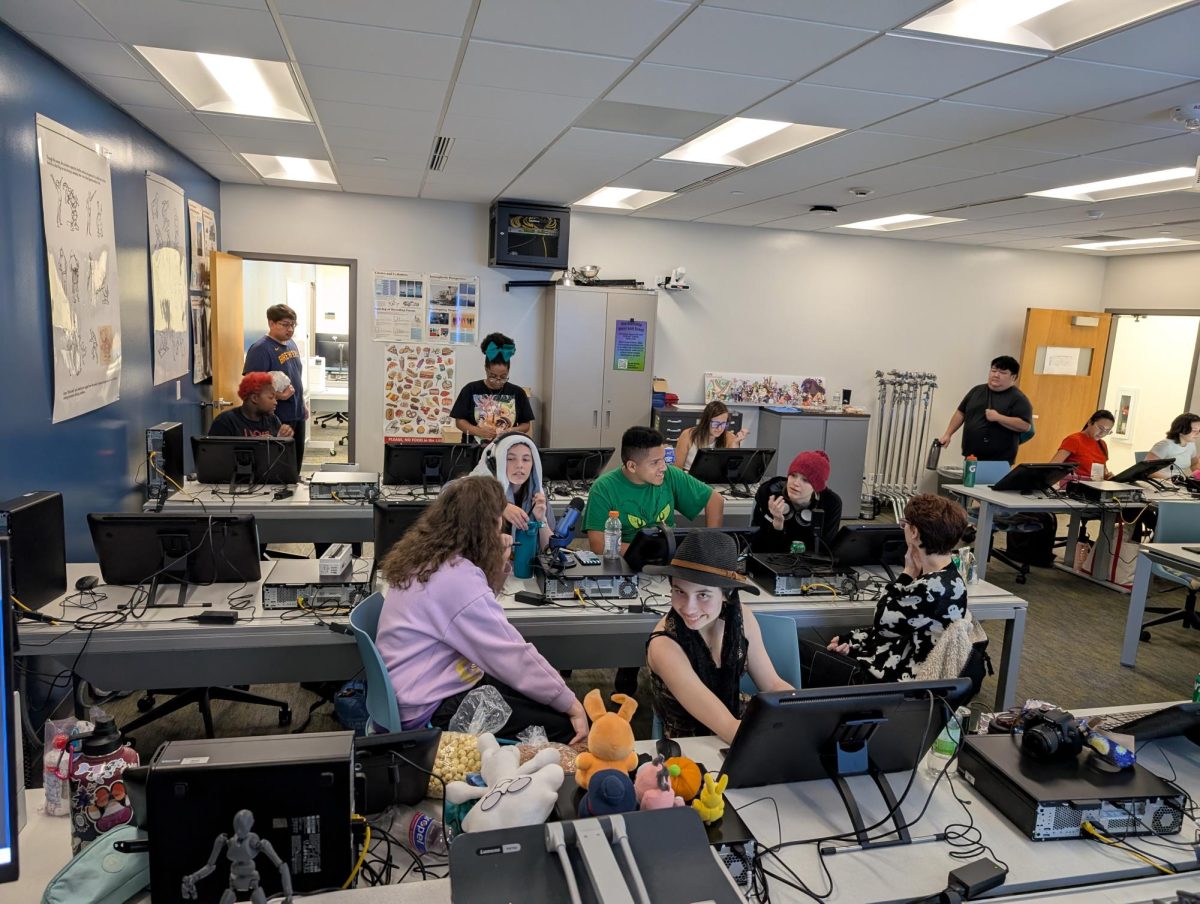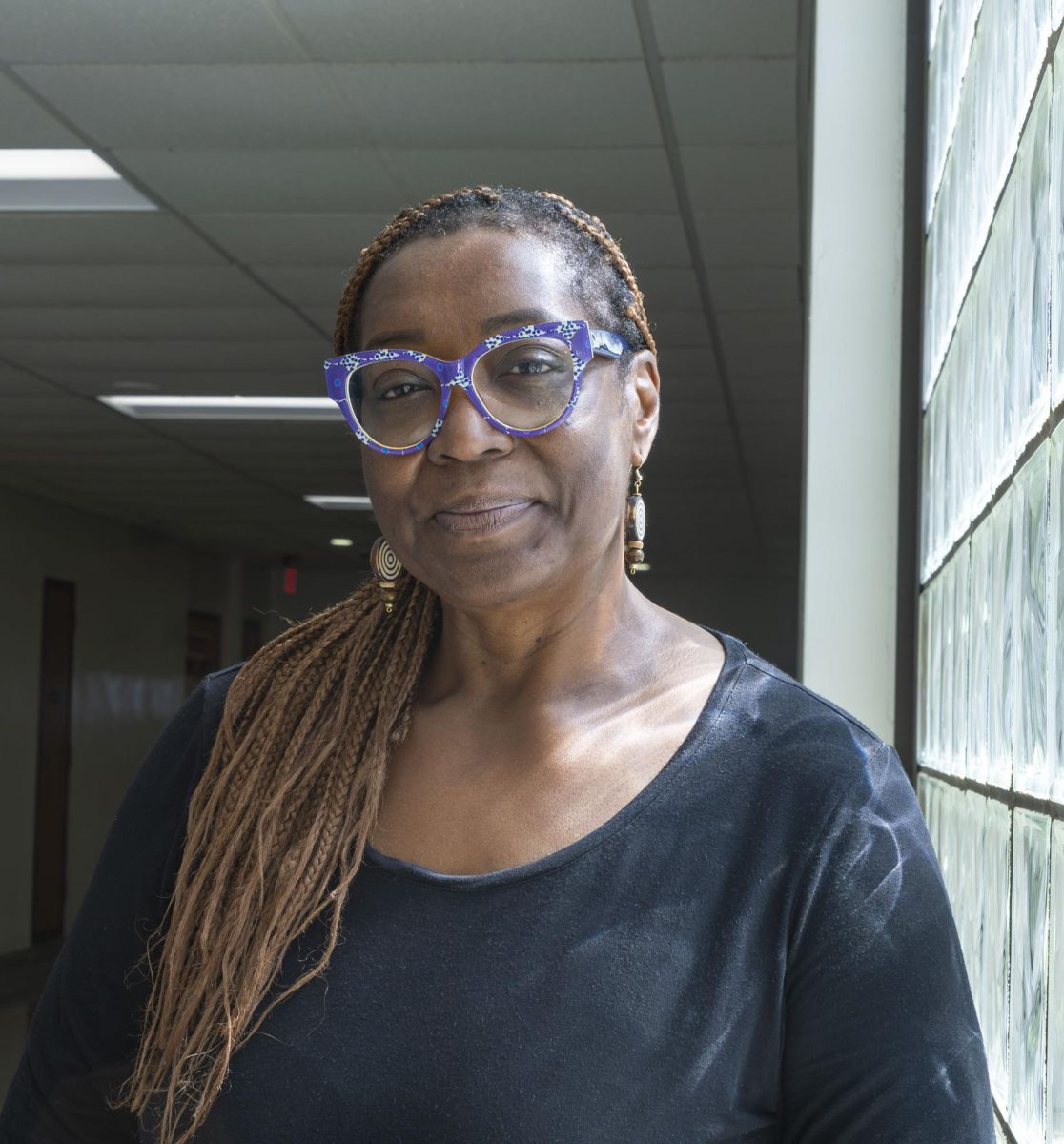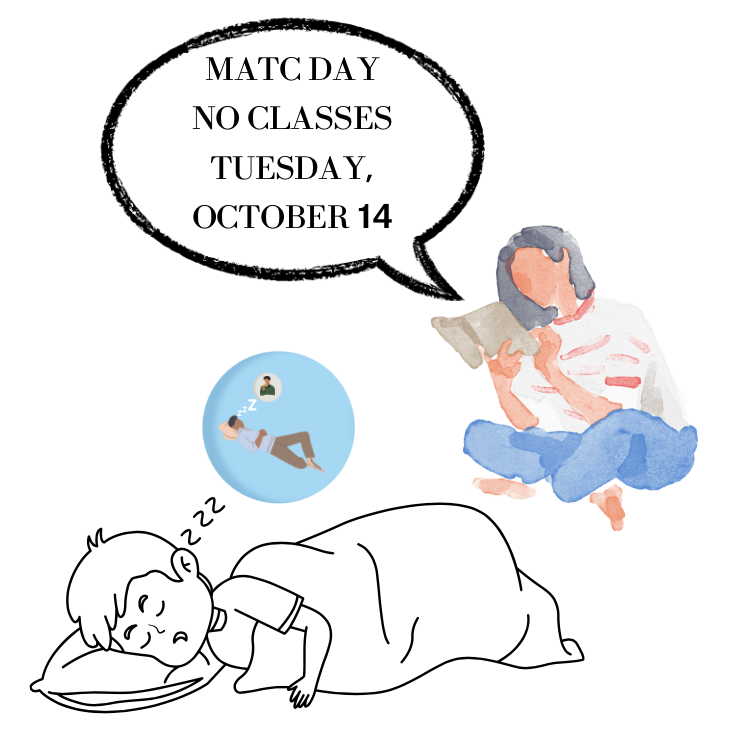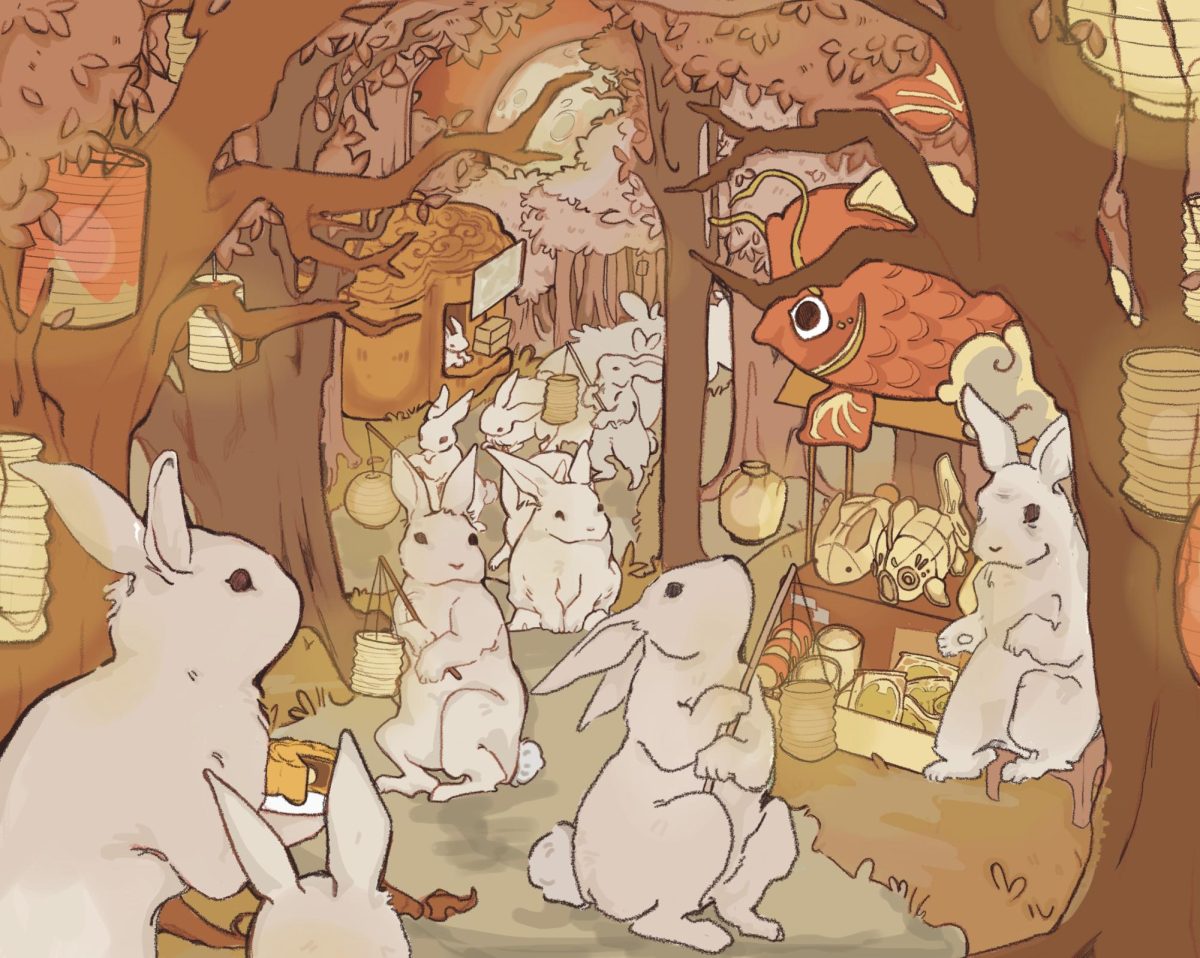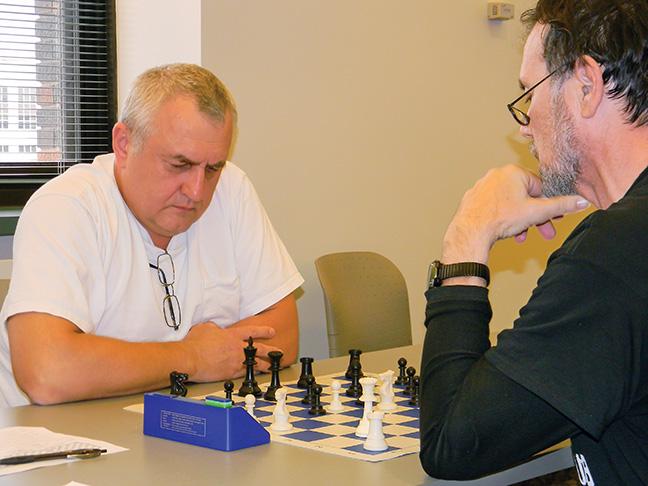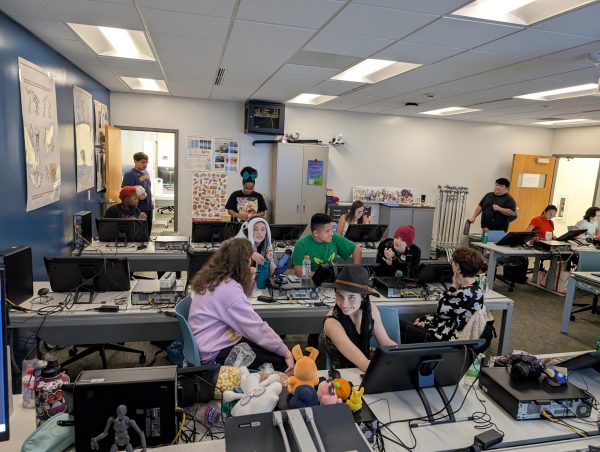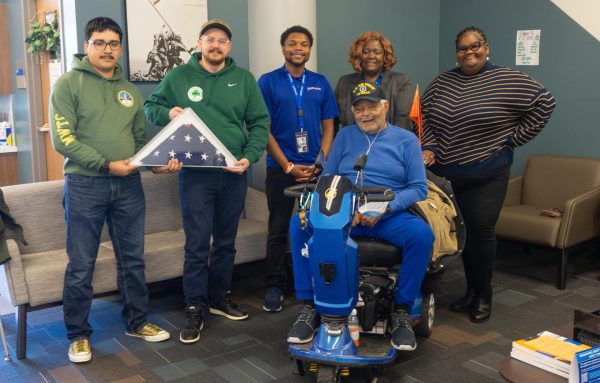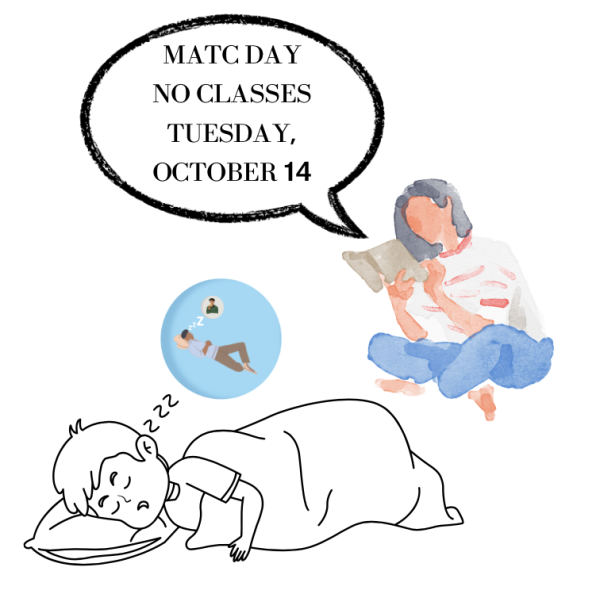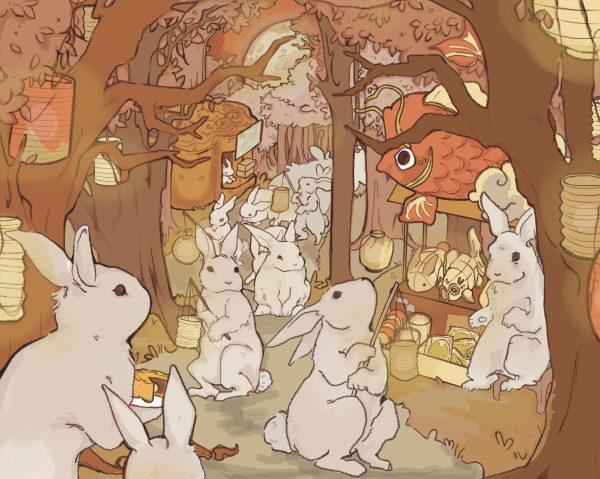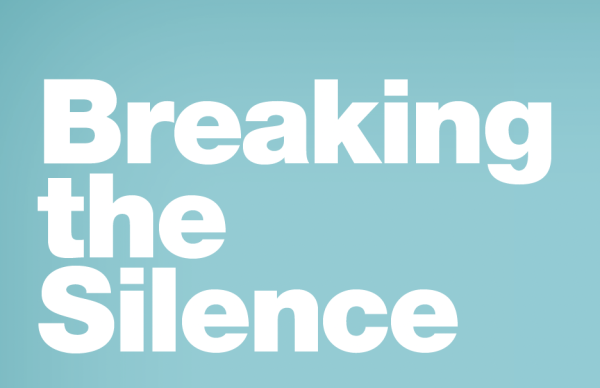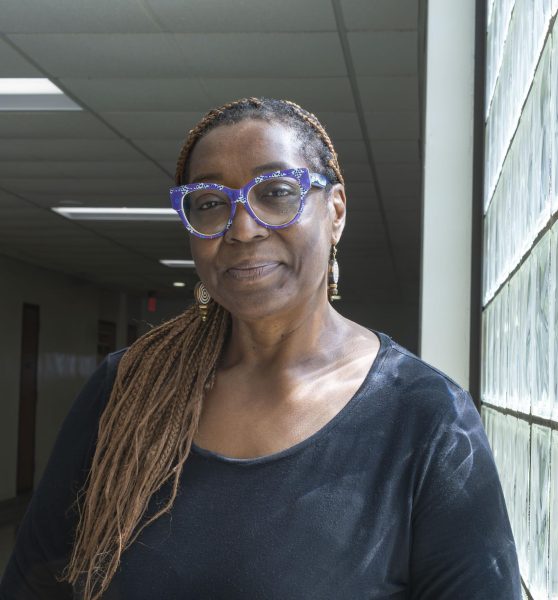Battle of the minds
Photo by Michelle Ferrell
Volodymyr Opryshchenko battles Brian Spaeth, co-adviser for the Chess Club, for first prize in the chess tournament.
Isn’t it interesting how our minds work? We do this or do that for the desire of what we want. We challenge ourselves every which way we can, for what? Some people believe the reason is just to be better even if you have to experience a rough time or make a mistake in the process. “Some parts of a mistake is always correct,” said Savielly Tartakower, which Volodymyr Opryshchenko, Business Management student, stated is one of his favorite quotes. Challenges will arise in some form or fashion and intervene in our lives daily, but most of them are challenges we bring onto ourselves. For years, people have sat across from each other with a board and some oddly shaped pieces, gave it a name (chess) and some rules, then battled with their minds. It’s a challenge that some people think is a waste of time but not to those who belong to MATC’s Chess Club. The Chess Club participants have tournaments and multiple days through the week for mind-battling chess games that give anyone his or her challenge.
On Oct. 18, students of the Chess Club decided to let their normal challenge reach out and become a challenge to those of a different breed (people who don’t normally play chess), so they had a chess tournament.
“There is no better way to demonstrate a person’s skill at the game than with a tournament,” commented Brian Spaeth, ESL educational assistant and Chess Club adviser. “It’s great for building chess clubs because they promote camaraderie through the sharing of knowledge and create a special kind of excitement that’s not found in other types of tournaments.”
“If I’m going to play chess,” stated Opryshchenko, “I have to use my internal energy, all my powers: my sight, my feel, my talk, all my senses….Lose concentration and pow! Someone can kill you and game over.”
Everyday people in society refer to life as chess because, in a sense, every move we make is the action that causes a reaction, and if not attentive enough or properly calculated it can be game over, like Opryshchenko said. Not doing your homework assignments would never get you an A in class. The game of chess is referred to as life for many reasons. Some people believe it has its own life which intertwines with our lives, so are we subjected to responses like a piece in the game?
“Chess is a mental fight with someone,” said Rodrick Worthham, Liberal Arts program student and Chess Club president.
“A top-level chess game can be a thing of genuine beauty, reflecting a ray or two of the wisdom, order and brilliance of the One in whose image we were created,” said Thomas Ross, of staff safety and a Chess Club member.
Unfortunately, not too many different breeds showed up but that didn’t stop the show. The scene was diverse with many laughs and many hugs, which showed respect and togetherness (even though in one second they would become each other’s opponent). Once the clock started, you could tell it was a different atmosphere. The faces were still as a statue but the eyes were were bright and attentive like a burning building. It was a several-hour event that gained victory and prosperity to those who participated. Even if they didn’t win the cash or prizes, they won a mental process of critical analyzing.

I look forward to using my position as an Editor for the Times to inspire students to become more aware and active participants in their own education....

